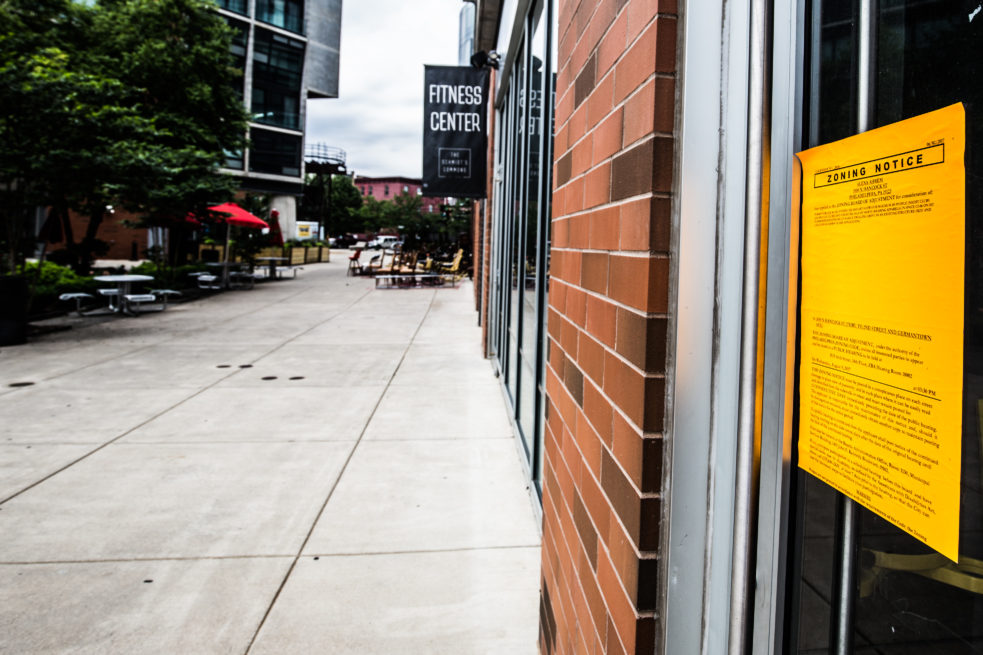
RCO Fever!
One of the most sensible and also counter-intuitive parts of the zoning process in Philly is the community review.
Any time you want to use your property for something that the zoning code doesn’t allow, you must seek a variance from the City of Philadelphia (as we’ve discussed). When you seek a variance, a community organization in Philadelphia gets to review the proposal before the City looks at it.
This is sensible because we live in a city, and we need to be conscious of our neighbors’ needs and preferences to share space peaceably. This is also insane; because it gives your neighbors the power, for any reason whatsoever, to voice disapproval of any major change to the property that you bought with your money. (I don’t go to City Hall to officially complain that I don’t like how big your car is, you know?) These groups of neighbors are called Registered Community Organizations (RCOs). You probably know them as the [Insert Neighborhood] Neighbors’ Association or the [X] Ward Democratic Committee.
The Philadelphia Code says what a community organization is and can do. (Take a look, if you like.) A community organization — whether a community development corporation, a political club, or a group of concerned neighbors — has to register with the City, according to the rules of the Code. Basically: they need to show that they’re a real group with a mission statement, local focus (boundaries that don’t encompass more than 20,000 parcels of land), regular elections, and public meetings open to all interested parties. If they’ve got that covered, they can submit an application packet to the City.
If the City lets them through, they’re now a registered community organization (see how that works?). And now they have Godlike powers over development in Philadelphia!
Okay, that’s an exaggeration: They’re entitled, by law, to a meeting with the person or team asking for a zoning variance — this might be a homeowner, an architect, your friendly project coordinator from Philadelphia Zoning, or a lawyer representing all of the above. The presenters have to get a flier advertising this meeting — by mail or by hand — to every single address affected by the development. If you’re worried about figuring out which addresses are truly affected by the project, don’t: the City provides a list of addresses in a few-block radius. Once these addresses have been notified of the meeting, the person or group who wants a new zoning permit can present their case to the RCO.
It’s a complicated part of the process for the development team, but it allows the community group to have a say. Their vote is non-binding: the Zoning Board of Adjustment takes the RCO’s vote into consideration, but may choose not to pass projects that have approval from the community; or to pass projects that do not have approval from the RCO.
Here’s where things get interesting: while the section of the Code detailing the role and appointment of RCO’s is very detailed, the end result is less structured than you might imagine. Almost any group in a given area can turn themselves into an RCO if they file the forms and swear that they hold regular elections of officers. So in Philadelphia you can find deeply committed community development corporations alongside completely disorganized social clubs alongside hyper-organized, militant collections of neighborhood gossips who don’t like those kids on their lawn. The RCOs can make their own rules, too: asking for their fliers to be distributed in advance of meetings, or asking for their people to get a first look — before the rest of the neighbors — at the proposed changes. There’s a lot of variance.
On the development side, it’s always easier — so, so much easier — to get RCO approval before a ZBA hearing. So even when the RCO makes rules that supersede their authority under the Code, the pressure is on the developer not to make a fuss: to accept the extralegal rules just to be done with it.
We’ve had meetings where RCOs asked pointed, clear questions about how our projects would affect their neighborhood. And we’ve had RCOs that demand two or three meetings instead of the one. We’ve even had an RCO that was not assigned by the City of Philadelphia demand meetings with our client — meetings not required by law — just to assert territorial dominance. (That one worked out nicely in the end; thanks for asking.)
So the RCO process is a great, sensible part of the Philadelphia Code; and also a way for people with nothing better to do to yell at homeowners and developers. It’s both of these things, and to navigate the difference, it’s probably best to have an experienced team of expediters and zoning consultants on your side. A team like the one at Philadelphia Zoning.

